The Entrepreneurial Accountant: The journey to going solo
Integrating technology with the human touch: Lessons learned starting my practice, with Sam Mitcham
26 January, 2022
The founder of SJCM Accountancy reveals how she started her practice and shares tips on helping clients with Making Tax Digital.
Jumping from full-time employment to running your own business can be really exciting. However, stepping into the unknown can be scary too. Sam Mitcham, the founder of SJCM Accountancy, decided to make the move gradually, and that’s something you could consider if you’re keen to set up on your own but are a bit hesitant to make the leap.
Joined by Entrepreneurial Accountant host Mike Psaras, Sam shares lots of lessons that she learned when she started her own practice.
From leaving life as an employee and becoming self-employed to finding new clients via social media, Sam has lots of insights that could help you as you look to start running your own accountancy practice.
Here’s what they cover:
Early days of SJCM Accountancy
Use the power of social media to promote your practice
Keep an eye on what’s around the corner when running your business
Identify the purpose behind your business
How using tech can help you rather than leave you behind
Show your clients how you can add value to them and their businesses
Get ready for the next phases of Making Tax Digital – and watch out for cryptocurrencies and NFTs
Be clear on what you can offer your clients
Early days of SJCM Accountancy
Mike Psaras:
Welcome to the Entrepreneurial Accountant: The Journey to Going Solo.
Today, I’m joined by Sam Mitcham of SJCM Accountancy and we’re going to be talking about balancing technology with humanity, and how both of those elements are going to be important to the future of accountancy.
So, Sam, welcome to the show.
Sam Mitcham:
Thanks very much, Mike. Thank you for having me.
Mike Psaras:
Thank you for being here.
Before we get into the sort of nitty-gritty of it all, I just wanted to pick your brain a little bit on your origin story of SJCM and how you went from client number one, back in 2019, to where you find yourself today.
Sam Mitcham:
Yes, of course.
So, I spent over 12 years working in practice before I decided that I wanted to go at it alone.
That decision was made in 2019. I was working for a medium-sized practice at the time and when I handed my notice in there, they didn’t want me to leave.
So, we came up with a bit of an agreement whereby I’d do two days a week for them. I took on Making Tax Digital (MTD) for VAT as a kind of year-long project with the view that at the end of that year, I could then phase out and go fully self-employed, and they would have had what they needed out of me by that point, and it would work for both parties.
So, that’s how I ended up fully self-employed. I did do that gradually.
I had that year whereby I still had a little bit of secure income, which really worked for me, to be honest.
It took a bit of the fear away from jumping from full-time employment, which was all I’d ever known since leaving school, to self-employment, which is obviously a very scary journey for anyone.
In terms of that first client, my first client was a very good friend of mine whose business has gone from strength to strength.
She had only been in business around two years prior to me taking over the accounts. And, as I say, her business has really boomed since that point.
So, that was a really nice first client story and journey to follow, to be honest, just because of the success of her business.
Use the power of social media to promote your practice
Mike Psaras:
And then, so you didn’t really do much advertising, how, therefore, did these guys find you, your new clients?
Sam Mitcham:
Yes, so I just hit social media, basically. That is how I’ve built my business up to now. It’s been a mixture of social media, along with current clients recommending new clients to come my way.
The social media side of advertising has worked for me, not in terms of saying, “Here I am, this is what I’m doing, I can do your accounts,” more just giving something back to the community.
Again, during the pandemic, that gave me a perfect opportunity to do so.
I was able to dumb down the government legislation, if you like, and just make that into a format that the average small business owner could understand.
And I think the effort that I put in to help the local trade and the group shares that I did, the video footage I put on local Facebook group pages, explaining to those businesses the kind of support that they could get, it just escalated, to be honest.
And before I knew it, people were saying, “Oh yes, we saw your video, and without that we wouldn’t have known what we were entitled to.”
So, when I say I didn’t advertise, maybe I did, but it was a bit more subliminal, a bit more, “I’m here and I can help you in this moment that you need help,” but that meant even if it was six to 12 months down the line, if somebody then said, “Oh, do you know of a local accountant?” I was the first one to come into the minds of the local businesses.
Mike Psaras:
Yes, for sure, being front of mind is super important. But also, genuinely, you were doing something good, it wasn’t necessarily only to attract clients.
I’m sure there’s a lot of people who watch those videos who you don’t even know about and who found those things really, really useful.
But I’m sure it was an amazing thing to build authority, do you know what I mean, and somebody who really likes to showcase that you’re someone who knows what they’re talking about, so I think that was a really, really smart move and well done you for doing that.
And I’m going to go and have a look at these after as well. I’m sure there’s a lot that I can learn from them, so that’s really cool.
And again, with that transition, you were saying that – sorry going back to you talking about the transition from full-time employment two days a week into having your own successful business.
With the benefit of hindsight, would you have done anything differently?
Sam Mitcham:
No, I don’t think I would, to be honest.
In terms of setting up the practice, there’s nitty-gritty things that have had a huge impact that I could have done earlier or done a little bit differently.
A prime example was I thought that I could manage without practice management software at first, and that that would be a cost-saving, I could it run it on spreadsheets until a certain level.
All well and good, and I did run it on spreadsheets, but then the migration over to practice management software is a very complicated one once you’ve got a lot of clients onboard.
So, there were elements like that where, if I could go back in time, I would make small changes.
But then again, I think there’s always lessons to be learnt and you’re never going to get everything right the first time you try in business.
And I have to – even now, I have to listen to the advice that I’m giving to clients that are quite new to business, and take that advice onboard myself.
I think, as accountants, we can put ourselves under quite a lot of pressure to be almost a perfect business owner from day one, but that’s not realistic.
Just because we can advise all these other businesses when we spot pain points within what they’re doing and help them, it doesn’t mean that we’re going to be mistake-free, if you like.
Keep an eye on what’s around the corner when running your business
Mike Psaras:
Oh, definitely. Definitely.
And I think that feeds into the point that we are offering advice and offering this service to improve other peoples’ businesses, but sometimes we get bogged down on just working on theirs that we forget about our own.
So, I wanted to ask you whether those – that year where you were working on MTD for VAT, whether that gave you the opportunity to think, “Oh, I’m going to be doing this myself one day,” what else is going on here apart from me managing my own portfolio?
What does operations look like? What does billing look like? What does marketing look like?
Did you sort of – was that something that went through your mind at the time?
Sam Mitcham:
It absolutely was, yes.
I think MTD for VAT was a classic example of that was the first instalment of MTD that HMRC pushed upon us.
And we all know that inevitably every tax will fall under MTD, whether that takes them two or 10 years, we are going to be there one day.
And I think the lessons I learnt within that VAT project were to be organised, basically.
It was the most vital lesson that I learnt.
In terms of as a business owner, you always need to keep a very good eye on what’s around the corner and what’s approaching.
And I think, certainly as an accountant, it can be very easy to get bogged down in the day-to-day work of actually getting the accounts out the door, getting the compliance done, but we still need to take a step back.
Certainly, once a month at the moment, I make sure I pencil out a day to work on the business instead of in the business.
But ideally, to be honest, I think I would be doing that once a week eventually, especially if I have the staff there that can be doing the legwork.
I think, from a business point of view, it’s very, very important to keep that plan going.
In terms of actually running a business, prior to the employment where I did my MTD for VAT project, I worked alongside a small practice director for five years, and he very much took me under his wing and taught me a lot of what I know today.
I was very lucky to have the five years that I had within his practice, because I didn’t only learn a lot about accounts and tax and all of that good stuff alongside studying, but I also got to learn a lot about running a small business.
It wasn’t always pretty.
I got to feel the pain points with him. It was a husband-and-wife business. I saw the pressure that it put on their home life at times.
All of that stuff that sometimes I don’t think practice owners realise is there in the background when they’re working for a medium-sized practice, I got to experience first-hand from working with such a small practice for those five years.
Identify the purpose behind your business
Mike Psaras:
That’s amazing.
And I’m sure anyone who is listening would be probably thinking, “What did you learn?”
So, not to put you on the spot, but if there is anything particular that you really took with you to SJCM, I’d love to hear it.
Sam Mitcham:
I think one of the main things that I see a lot of – or I hear of a lot of practice owners tripping themselves up on is they put a lot of pressure on themselves to make the right decision, especially when it comes to technology.
Anything that’s kind of seen as advanced in the tech world that might catch their eye and they think, “Oh, should I go for it? Should I not?” Yes, OK, it is a huge migration if you make the wrong decision and then have to move software.
However, a lot of the time, no matter what it is you’re using, whether it’s just a tiny little app in the background or a main software for your accounts production, you’re never going to experience it truly from the demo that they’ll offer you online.
You have to use it and you have to see whether it fits your client base.
And I think one thing that I learnt is although mistakes can be very – could take a lot of time up and be a bit of a nightmare within practice, nobody is going to get that right from day one.
And the more software and products and packages you can experience, the more likely you are to find the one that fits perfect for your practice, or as near to perfect as you can.
I think the other thing that I really learnt is that the ethos of a business is very important.
If you have an ethos to your business that means a lot to you – for example, my tagline is “Balancing technology with humanity”.
I think if there’s something like that that’s very, very important to you, you have to constantly remind yourself of why you’re doing what you do, otherwise I think the growth and the way that it can spiral very quickly, you can go from having 10 to 100 clients in a very short space of time, you can get lost in what you’re doing.
And it’s something that I’ve almost caught myself with, but then managed to pull back on and gone, “No, hold on a minute, I promised that I wouldn’t let go of that humanity aspect of my offering.”
So, quite a few times, I will admit that I’ve had to almost sit myself down and have a word with myself and think, “Why am I doing this? What is the backbone and the tagline of this business?”
And in doing that, I’ve been able to go from strength to strength, but without losing the whole reason behind what I do.
Mike Psaras:
Yes, I think both of the things – both of the points that you make really resonate with me, particularly on the tech side.
You’re saying that inaction is probably the worst thing, you’re just standing still is going to mean that you’re eventually taking steps backwards in your business, because you’re not taking that step towards trying one bit of software because you’re not sure.
Sam Mitcham:
Yes.
Mike Psaras:
You have to go for it at some point because otherwise you’re just not going to get anywhere.
And I think that’s the point that I find myself in now where I’m exploring all of these different things, and I’m like, “They all sound kind of similar, but they all…” do you know what I mean? But I’m not too sure, and it’s just taking that leap of faith, it’s really important.
And from what you’re saying, is the more you do it, the less of a big deal it’s going to be to you and your business. So, just to me as well, to just take that step and go for it and see where you end up.
And the other thing I think as well, the other point that you make, I think it’s really, really amazing is that you’ve got your niche – you’ve got your ethos and you have to double-down on it, I think, because otherwise you have this loss of direction. It’s not clear where you’re going.
You might end up with a portfolio of clients that just… yes, it’s a portfolio of clients, yes, it pays the bills, but it doesn’t fit your business.
Sam Mitcham:
Yes, absolutely.
Mike Psaras:
And so, that’s – I don’t know about you, but it’s certainly been a turning point for me where I’m just… we get enquiries often, which is a great, great thing.
But more often than not, we’re saying, “Actually, this isn’t what we do, we do, X, Y, and Z things, these are the things that we are good at, these are the things that we love to do and where we can provide the most value.”
Sam Mitcham:
Yes.
How using tech can help you rather than leave you behind
Mike Psaras:
So, yes, both of the points that you made are absolutely amazing and really resonate with me.
But moving more into the tech side of things, I wanted to pick your brain on something.
Because I think tech and AI (artificial intelligence) are developing at such an exponential rate that there might be aspiring business owners, practice owners listening and thinking, “Well, is it a matter of time before these sorts of artificial intelligence-enabled software just make the traditional compliance accountant redundant?”
And I wonder whether there’s any part of you that worries about that?
Sam Mitcham:
Personally, no, it doesn’t worry me.
I think an analogy that I always like to use when asked this question – and I have been asked this question a few times over the last couple of years – is when supermarkets first got the self-serve checkouts, everybody was fearful for the workers in the supermarket.
Were we going to go into supermarkets, all of a sudden, and there’d be one shop manager and nobody else on the shop floor?
Whereas, in reality, we stand at the self-serve checkouts and, actually, we probably need more help and assistance than we did before they existed.
Because if we don’t scan our item and place it on that counter at exactly the right moment, that till is setting the flashing light and we’re having a human to come over and help us.
And for me, that is exactly what is happening and what is going to happen further and further in accountancy. Actually, it’s an enabler.
The technology is there to save time, to eliminate human error, to give us accuracy, and to give us a much better view of what’s happening in our client’s business.
It’s not there to replace the human.
You can’t replace the human with that technology, because without the human intelligence behind the tech, the tech won’t work.
A perfect example that I like to give on this one is there are software packages out there that would tell a client that they could, for example, do their own tax return.
It’s all well and good, but without the understanding of legislation behind the technology that’s there, it’s almost pointless having the technology, because the output is only ever going to be as good as the input.
And if you don’t know exactly what you should be inputting, your output is not going to be worth – is not going to be viable.
And I think, for me, it’s only ever going to be a human being that can interrupt that process and say, “This is where you need to – this is where you’ve gone wrong, or this is what you need to do.”
Or to actually look at the output and make sense of it, it’s only ever going to be a human being doing that.
Mike Psaras:
Yes, I think I’m in agreement with you.
And although it is making some things a bit easier and, certainly, there is definitely a space for tech, I totally agree that it’s your understanding of accountancy, your understanding of taxation that’s really going to make the difference.
Because ultimately, you’re never going to… somebody who is just inputting stuff that doesn’t know what they’re doing is never really going to be able to check whether that output, whatever the tax return looks like at the end is correct.
They’re just literally putting blind faith in the software and clicking submit.
And I just can’t see that working out long term.
And also, just errors of omission.
You might have – you might think you’ve thought of everything and, actually, a lot of the times, I don’t know about you, but with clients, they’re like, “Oh, yes, I just need to give you this and this,” and I’m like… and I think, “Yes, I probably could do a set of accounts based on what you’ve given me, but you certainly wouldn’t have the best position, because actually you haven’t thought about this, this, this, and this and those are all taxable deductions, so give them over here and we’ll put them in the accounts and we’ll have a much better picture.”
And I just can’t see a time where technology will be able to do that for you.
Maybe in the distant, distant future.
But having said that, I still think that the role of the accountant is changing because of it. And so, we’re moving towards a bit more of an advisory, strategic partner kind of role, rather than a person who just you see once a year, and they give you this bit of paper to sign.
Just to bring it back a little bit, because we were talking about compliance, and we were talking about bookkeeping and tech and all that kind of stuff.
I wanted to pick your brain on something, because it happened to me a couple of years ago when I was quite early on in bookkeeping, and I didn’t really – and I hadn’t really used cloud accounting software that much.
So, I was still a bit new to it and I was challenged on bookkeeping fees, not that I do so much bookkeeping, and I hadn’t even at that point, but I was like, “I think this is how much it’s going to be.”
And they said to me, “Well, look, we’ve got the software, we’ve got the bank feed, we plug it in, we’ve got the bit of software that reads the invoices and the VAT, so we link all of those things together and we just click and it all reconciles and we press submit on the VAT Return and that’s it, so why do you need to charge me any money for this?”
And you and I know that that’s not the case, but it’s… have you ever felt that peoples’ perceptions of how these technologies work have hindered your ability to either charge fees or maybe even undermined your position as an accountant?
Show your clients how you can add value to them and their businesses
Sam Mitcham:
Slightly. And I think the key here is to go in with confidence and go in with… one way I like to tackle this is dependent on what that client does themselves.
I can think back to a conversation I had with a decorator once of exactly this. He was convinced that he could do the bookkeeping himself and that my fee was too high. Very similar to what you’re saying really.
And I think there’s two ways to go about it. I think you can let the client go and try and do the bookkeeping and VAT themselves, and then maybe when they realise that actually that is not what they want to be spending their time doing, and that you are worth paying that fee for.
Or I think you can turn it on its head really.
Going back to my decorator client as an example, I said to him, “Well, I can paint a wall,” and it’s the same kind of idea that I can paint a wall, but the minute that there’s a bit of loose plastering, or there’s a bit of a damp issue within a house and I’m trying to paint a wall and the pain is falling back off the wall, oh, what’s happened here? It’s the same kind of idea.
It’s all well and good them saying, “We can do the bookkeeping, we can click these buttons, we can have a bank feed running and then it reduces the VAT return itself.”
That’s fine, but when you come across something that’s partially exempt for VAT, or you’ve bought something from a different country, or Brexit happens and then everything changes, all these things that they actually come across once they start doing the bookkeeping, I think for that kind of client that’s almost trying to barter on the fee, you have to re-educate them in what they are paying you for.
They’re not paying you to just click a few buttons. If they were, it would be a much cheaper service.
They’re paying you for the years of experience, and for the fact that if there was something wrong within the bookkeeping, or if a VAT law did change which affected that business, you’d pick up the phone and let that client know.
And I think until these things happen, some clients won’t believe it.
Mike Psaras:
Yes, absolutely. Absolutely. And so, that covers off the tech side of things.
So, moving more towards what we do as people, you mentioned your tagline, which I think is really lovely, it is balancing technology with humanity. And that really resonates with me, because I feel like relationships with clients, but also with staff, are really at the heart of everything that we do.
So, I think we’ve sort of touched on it a little bit but how, I guess, have you leveraged technology to give you the space to be more valuable to your clients?
Sam Mitcham:
I think there’s a few sides to this one. I think the obvious one is time saving.
So, the technology that we can implement, not only makes the records more accurate, but it also saves everybody time.
And although, generally speaking, accountants don’t bill on time anymore, obviously, the backbone of the fees that we charge a client are still dependent on time, because every business has to take time into consideration when pricing.
So, I think the fact that technology can save a lot of time, both for the client, so that the client can get on with running their own business, and then for us, as accountants, so that we can then implement that time in talking to the client, and not just sat here typing in dates, amounts, and VAT rates of their purchase invoices.
So, I think that’s a huge side to it that if we can save time with this app or that app, then that’s time that we can spend then helping you on your business without the fee creeping up and up and up.
I think in terms of what the technology can do for the business itself, you have to look at each business individually.
And I think there are always going to be some businesses that do just need a bookkeeping software and that will be enough.
But I can also think of a lot of examples whereby the technology available to a business, that they haven’t necessarily been using, has actually opened up so many doors for them.
And I think sometimes they need – because it’s such a vast space and it’s such a confusing world of which apps would actually work for a business, I think that whole app advisor role can be very, very valuable to a client.
Because although they might see an advert for a certain app or a certain piece of tech and think, “Oh, that might help my business,” I think to come along as the accountant and say, “Do you know what, I used to have a small corner shop like this that ran an old-fashioned till instead of a till that did stock control as well that was hooked to the bookkeeping,” for example.
I think until you can actually put a real-life example on the table, clients can sometimes say or think that app is really expensive, and I don’t think it would help my business.
Whereas we can come in with that kind of real-life experience and say to the client, “I’ve seen this issue within a certain trade before, and I know for a fact that this app or this piece of tech could help your business.” I think training clients on how to use software is something that’s very, very important as an account.
In that, I mean, a big mistake I’ve seen in practice in the past is signing a client up to a certain app or a certain piece of tech and then just leaving them to it.
That’s never going to prove the worth of that piece of technology. Because until they get the training that they need, nobody is going to fully benefit.
So, I think any app or any plan of action that an accountant has, has to be in a kind of hand-holding exercise with the client until confidence is growing on both sides.
Mike Psaras:
Yes, it’s amazing how far-reaching the role of the accountant is and just you saying the words “app advisor” made me think, “wow, to a certain…” it’s definitely the case, you are doing that, it’s just when you coined the phrase like that, I just think, “That’s insane that we’re doing that.”
And it’s really good because, ultimately, you’re right, we are the people who have the experience.
We do look after 50, 100 different clients who are all doing things different ways. Some are doing it well, others are doing it very badly, and we can pick up from all of those experiences and put them together, and that’s our experience, and that’s what we put into our offering to add the value.
And that’s, I guess, where we’re headed to with this accountancy, adding value, helping them implement things that are going to improve their businesses.
So, that is all about how, I guess, technology is elevating the work that we do and giving us more space and more time and ability to just focus on those value-add services rather than being swamped down with shoebox upon plastic bag upon other things of receipts and things.
I don’t know if you’ve ever done it, but I’m old enough to have written down bank statements line-by-line-by-line, thousands of them.
Sam Mitcham:
I’ve seen that.
Get ready for the next phases of Making Tax Digital – and watch out for cryptocurrencies and NFTs
Mike Psaras:
Yes, exactly. So, all of these things are now resolved. As we say, it’s the outputs that matter, and it’s the outputs that really, we can take on and advise our clients with.
So, just wanted to ask you for anyone listening who is thinking about the long-term of the accountancy landscape, what do you think it’s going to look like over the next five years?
What changes do you think may come in?
Sam Mitcham:
I think MTD for [Income Tax] Self Assessment is going to be the next huge change in, not only how the tax system works, but how, as accountants, we need to work.
I think my number one tip for anybody in practice or anybody thinking of going into practice at this point would be to really future-proof your practice to be able to cope with the demands of MTD for Self Assessment.
And also, to open up the correct channels of communication with your clients about that now.
Again, going back to the VAT MTD project that I was on, I learnt that organisation is key and also that communication is key.
You really don’t want to still be having clients in a couple of years’ time that are still using manual cashbooks or not running their business through a separate business bank account, to then say to them, “Hold on a minute, all of a sudden, you need to get a business bank account, because you’re going to have to run software, you’re going to have to have a bank feed, you’re going to do quarterly submissions.”
All of these… everything that’s going to change within Self Assessment MTD is going to be a huge pivot for a lot of small businesses.
I think we’ve got to take the positives in that, in that a lot of small business owners that, at the minute, are only interested in how low can we get the tax bill by the end of the year, are actually going to have the opportunity to start looking at their business performance on a quarterly basis.
And we’re going to be able to help them a lot more, because all of a sudden, they’re going to be forced onto software instead of just telling those that have kicked back from it so far that it is a good idea. We’re going to have to implement it, so then, hopefully, it will prove itself.
I think another area that could change things is the cryptocurrency world, the NFTs (non fungible tokens), all that side of things.
I’m not going to sit here and pretend to be an expert on that yet, although it is something that I plan to put quite a lot of time and effort into, even to the point where I’ve considered taking on a member of staff that’s very experienced in tax with the view that I could then pivot her towards learning a lot more about cryptocurrency and the planning and the tax implications of that world.
Because I can see that not going away anytime soon, and very much catching out some accounts that haven’t given that the time of day to learn about the best ways to advise clients.
I think as with anything in the world of accountancy, it’s always changing. There’s always going to be new tax laws.
Things are always going to have to change.
The capital gains tax return that, all of a sudden, had to be done within 30 days, for example, I think there might be more – well, it’s now 60 days.
They’ve backtracked on that, haven’t they?
But I think there might be more things like that in future where, actually, if you’re not working up to date and up to speed all the time, and you’re not having that efficient relationship with your clients, it might catch up with you as a practice owner.
The CGT being a perfect example. If your client’s not used to communicating with you, it can be very easy for them to just sell a property and not tell you about it until it’s too late, and then the CGT return’s late for submission.
So, I think the main changes are going to be all pivoting towards that closer relationship and, actually, the more seamless working with technology involved.
Mike Psaras:
All of those things I think are very, very true.
And the thing that I wanted to pick up on what you were saying about MTD and MTD for Self Assessment and maybe even for VAT, all of these things are basically pointing towards more detail and more complexity.
Do you think that there may be a space for people, or aspiring practice owners, to say, “Do you know what, I’m just going to do Self Assessment, MTD for Self Assessment, or I’m just going to do payroll, or I’m just going to do limited companies”?
For me, I think that’s the way that it’s going, because I think it’s difficult to still maintain that general knowledge when everything is just becoming more and more complex in all these different areas.
I get queries about payroll and I’m like, “OK, I did know that two years ago, but what’s happened since then and now?” and I have to refer it to somebody else, just to kind of like – somebody who does it every single day, because the pace of change is so high.
Sam Mitcham:
Absolutely.
Mike Psaras:
So, do you think it’s more about niching down your offering, to a certain extent?
Sam Mitcham:
Yes, so I think the niching of different sectors within accountancy is not something that I’ve given a lot of thought to, but I think you’ve got a really valid point there, that actually there will be room in the industry for niching of Self Assessment.
Because all of a sudden, MTD for Self Assessment is going to bring that work… sorry, it’s going to stop that work from being once a year, mad rush, January tax return season.
Because thinking back 10 years in practice, the tax return – even five years – the tax return department were absolutely dead from Feb, March, and April, they were doing admin.
You had chartered tax advisors that were doing filing because they had no work to do.
And as much as I think that has changed in line with a lot more clients using technology, I think it’s going to change even more so when MTD for Self Assessment comes in.
So, I absolutely do think that there will be a gap in the market for certain practices to pick up on that and say, “Do you know what, we are Self Assessment MTD experts.”
Yes, I absolutely think that there will be a gap in the market for that.
Be clear on what you can offer your clients
Mike Psaras:
Well, I mean, it’s been amazingly insightful, a fascinating conversation. Thank you so much for your time.
Before I let you go, there’s one more question that I wanted to ask you, and that is if you could go back to day one or even before you started SJCM and you could give yourself some words of advice, what would they be?
Sam Mitcham:
Words of advice from me would be to set boundaries with clients early on, be very clear about your offerings and the time that you’re willing to spend for the fee that you have set with that client, and to be realistic with yourself of how efficient you are with the first clients that you get onboard.
So, you may be able to respond to every email within six minutes while you’ve only got 10 clients, but I guarantee you won’t be doing that while you’ve got 100 clients.
So, certainly the piece of advice for me would be if you intend to grow your business, and if you think it may grow quickly, then be very realistic in the standards that you’re setting from day one, make sure that they are standards that you can continue through to match the growth of your practice.
Mike Psaras:
Amazing. Thank you so, so much. It’s been an absolute pleasure chatting to you, and I can’t wait to watch this back.
Sam Mitcham:
Been great talking to you, Mike, thank you.
Mike Psaras:
Thank you so much.
To make sure you catch every episode, subscribe to the channel, or sign up to the Sage Advice Newsletter at the bottom of the page.
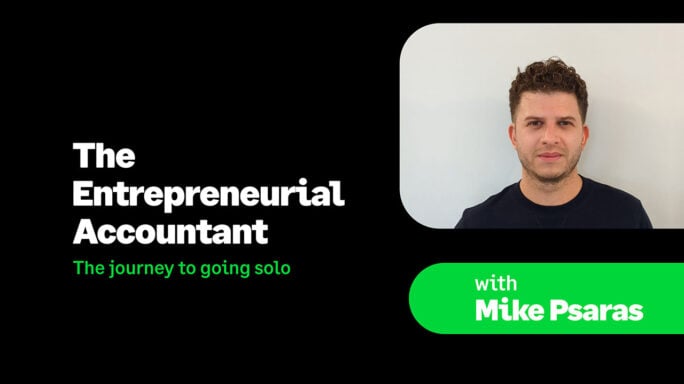
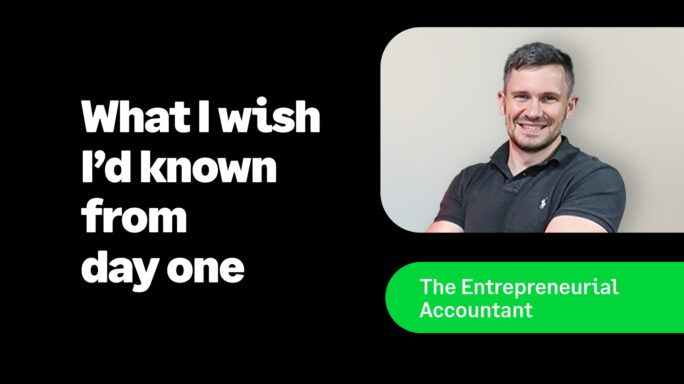
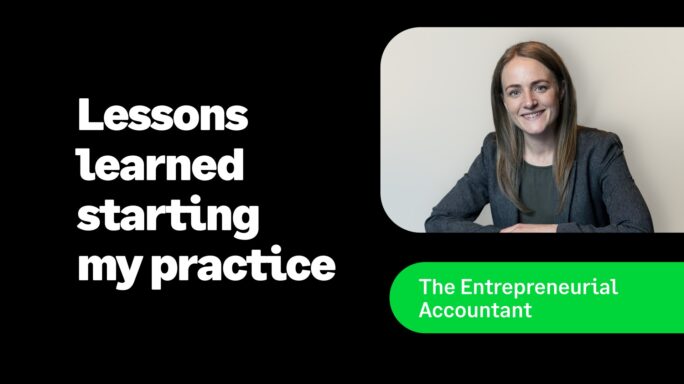
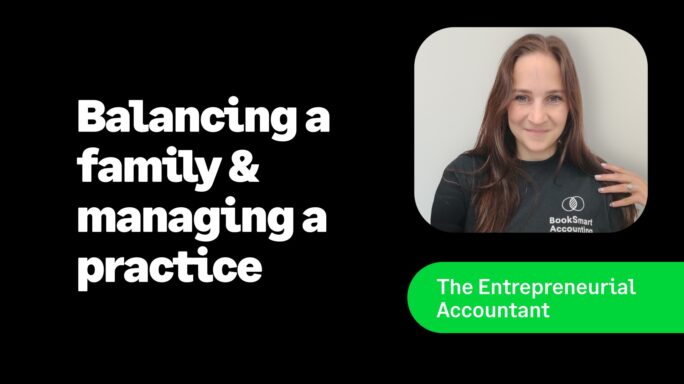
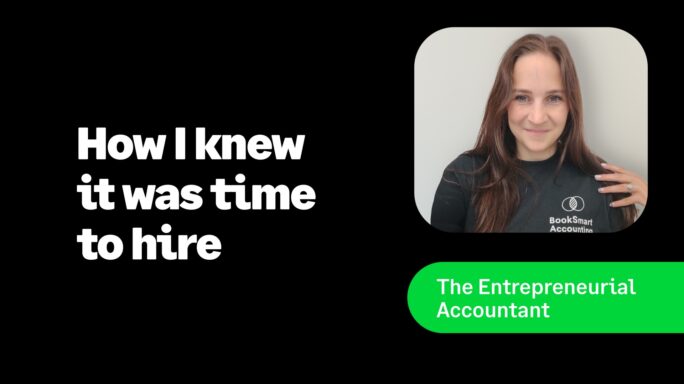
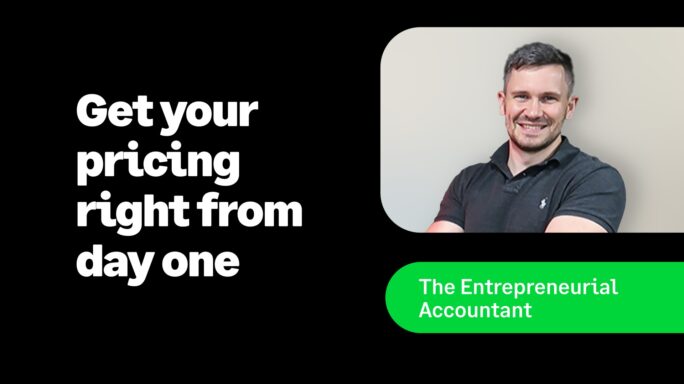
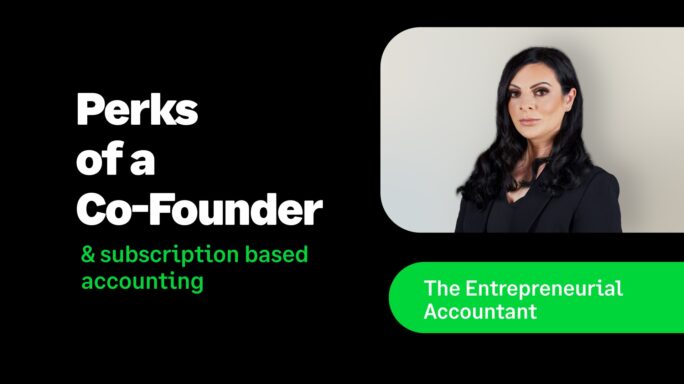
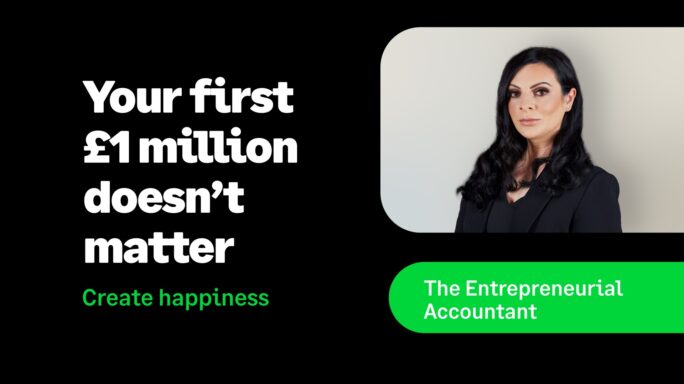
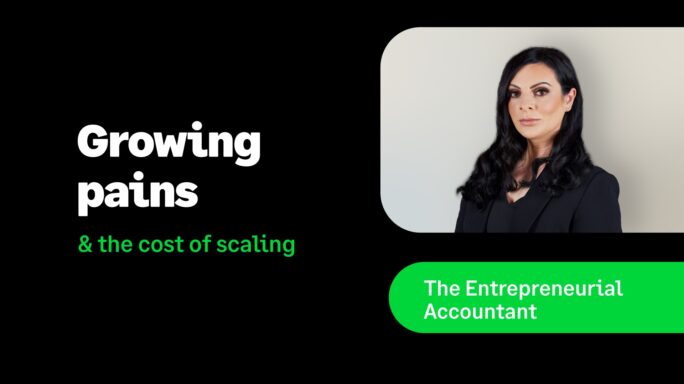
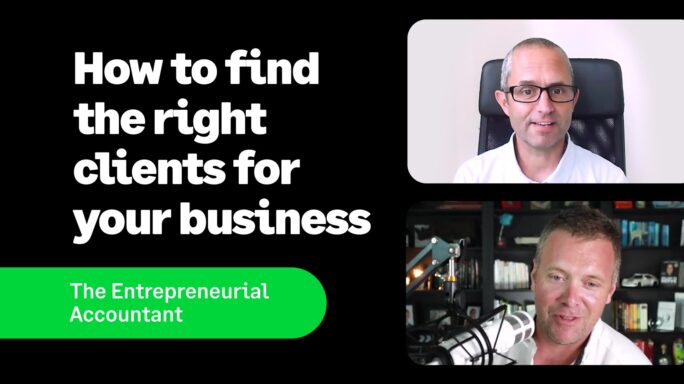
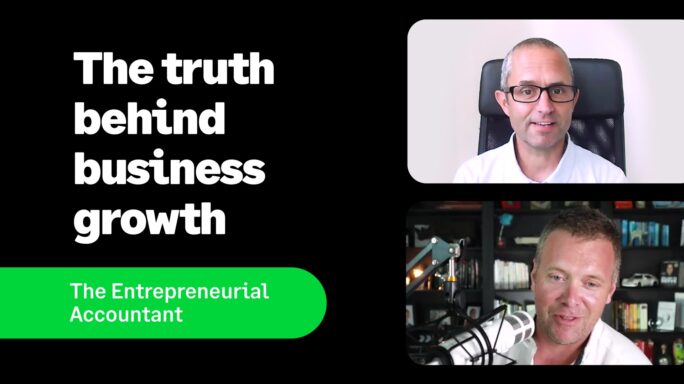
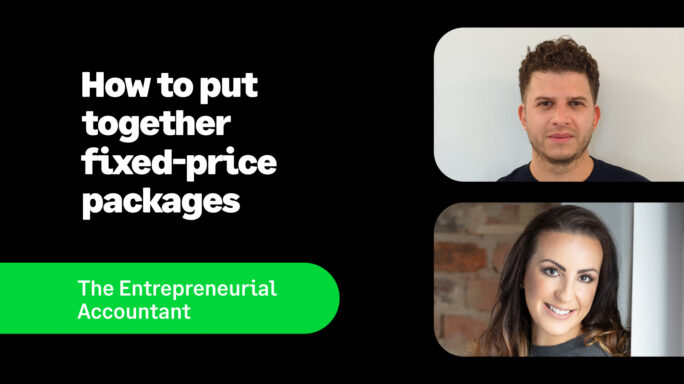
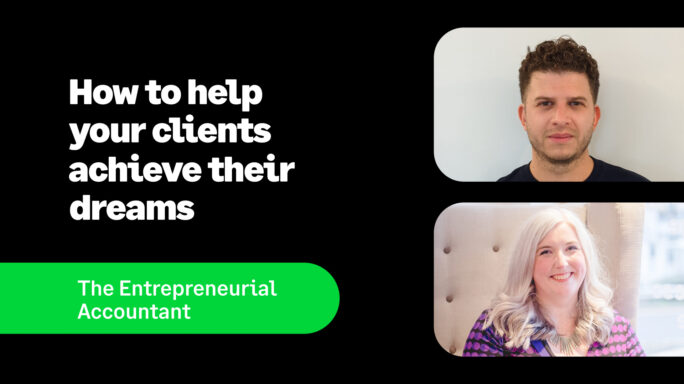
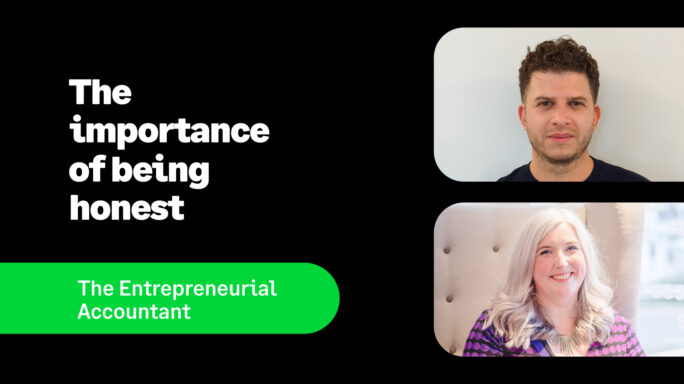
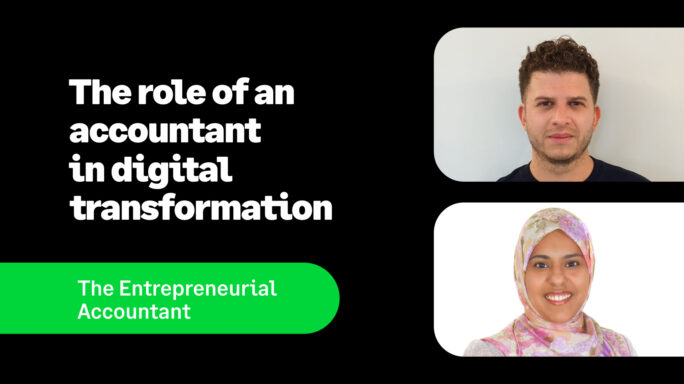
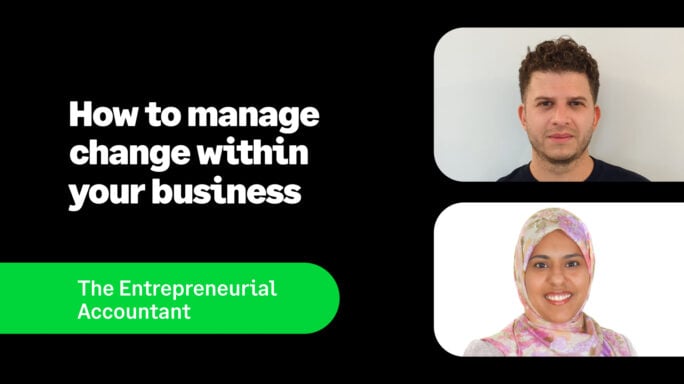
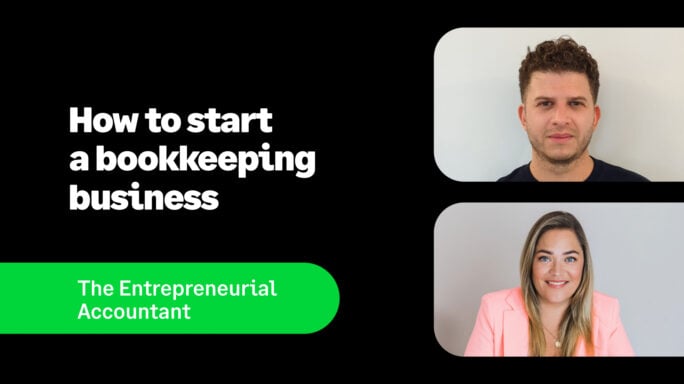
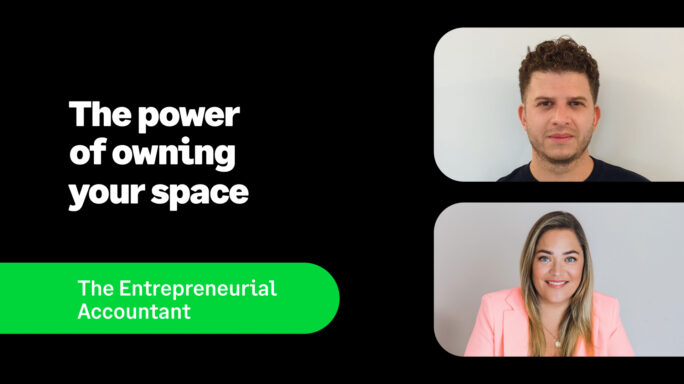
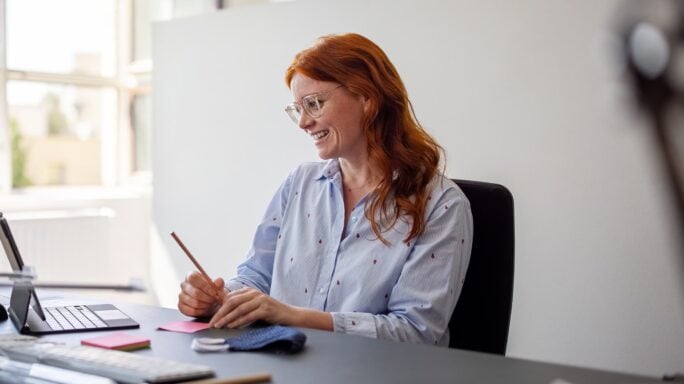






Comment below